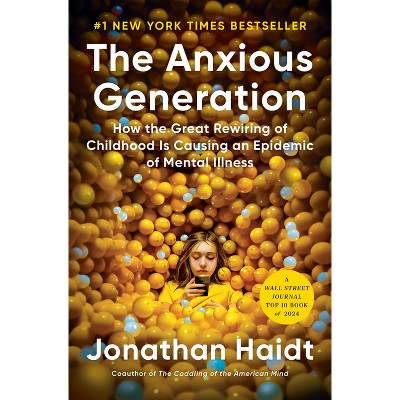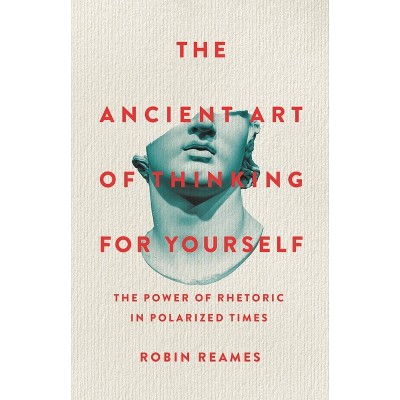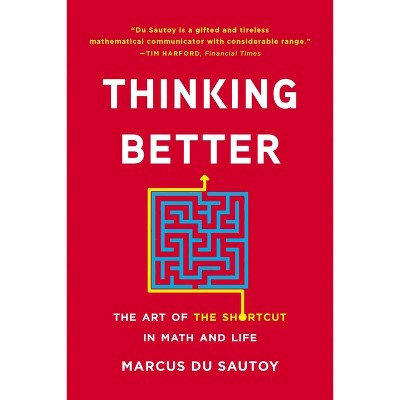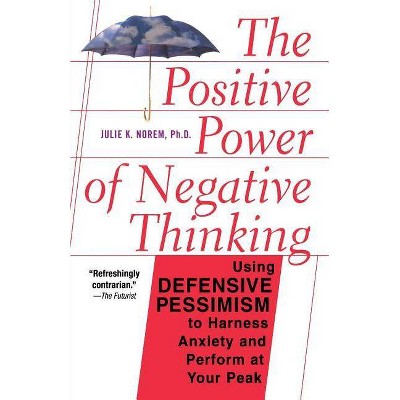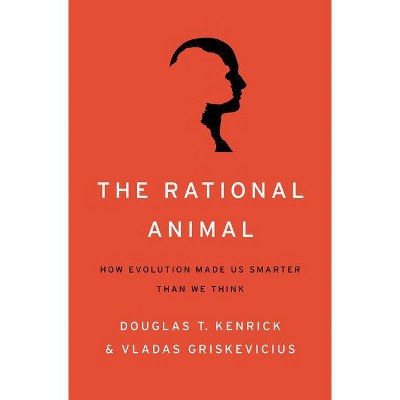About this item
Highlights
- An astounding account of how gesture, long overlooked, is essential to how we learn and interact, which "changes the way you think about yourself and the people around you.
- About the Author: Susan Goldin-Meadow is the Beardsley Ruml Distinguished Service Professor in the department of psychology and comparative human development, and the committee on education, at the University of Chicago.
- 272 Pages
- Psychology, Cognitive Psychology & Cognition
Description
About the Book
"Imagine a friend who earnestly tells you that he thinks men and women are equally good leaders. But when he talks about men's leadership skills, he places his palm at eye-level, and when he talks about women's leadership skills, he places his palm a bit lower, at mouth-level. His hands have given him away: even if he truly thinks that his views are egalitarian, he holds an implicit belief that is now there for all the word to see. You swear you heard him say something disparaging, even if you don't fully realize why. In Thinking With Your Hands, cognitive psychologist Susan Goldin-Meadow reveals just how essential gestures are to how we think and communicate. Drawing on decades of research, including experiments and studies from throughout her own illustrious career, Goldin-Meadow presents the definitive overview of the most important feature of human communication that you've never thought about. Gesture is a universal behavior common to every culture and language. It's found among Deaf people who use their hands to speak in sign language and blind people who have never seen anyone gesture before. Far from being an affective flourish, Goldin-Meadow argues, gestures are an integral piece of the conversation-even if we don't realize it while we're using them. They give form to ideas that are difficult to phrase in language and help us express ideas that we are grappling with but haven't yet fully grasped. Indeed, understanding gesture compels us to re-think everything from to how we set development milestones for children, to what's admissible in a court of law, to whether FaceTime is a good communication technology. A landmark achievement by a star in the field of cognitive psychology, Thinking With Your Hands reveals the entire landscape of communication that's hidden in our hands and promises to transform the way we think about language for decades to come"--Book Synopsis
An astounding account of how gesture, long overlooked, is essential to how we learn and interact, which "changes the way you think about yourself and the people around you." (Ethan Kross, bestselling author of Chatter)
We all know people who talk with their hands--but do they know what they're saying with them? Our gestures can reveal and contradict us, and express thoughts we may not even know we're thinking.In Thinking with Your Hands, esteemed cognitive psychologist Susan Goldin-Meadow argues that gesture is vital to how we think, learn, and communicate. She shows us, for instance, how the height of our gestures can reveal unconscious bias, or how the shape of a student's gestures can track their mastery of a new concept--even when they're still giving wrong answers. She compels us to rethink everything from how we set child development milestones, to what's admissible in a court of law, to whether Zoom is an adequate substitute for in-person conversation.
Sweeping and ambitious, Thinking with Your Hands promises to transform the way we think about language and communication.
Review Quotes
"a masterly tour through a lifetime's research... No one who reads his book could ever again think that gesturing shows only a lack of control. It is about thinking and communication, and is a sophisticated aid to both." --The Economist
"[a] thorough and powerful book"--Lisa Aziz-Zadeh, Science
"Thinking With Your Hands is a book of science exposition, something like a lecture from a good professor. ...The subject is fascinating."
--Timothy Farrington, Wall Street Journal"This book is big."--Terri Schlichenmeyer, Bookworm Sez
"Thorough and insightful"--Dan Falk, Undark Magazine
"thought-provoking... a fascinating look into communicating with gestures."--Bridgette Whitt, Library Journal
"Susan Goldin-Meadow has expanded our understanding of language with her fascinating research on gesturing, and in this book she illuminates the nature of gesture and its intimate relationship to language and communication. Thinking With Your Hands is rich with information and insight."
--Steven Pinker, Johnstone Professor of Psychology, Harvard University, and author of The Language Instinct
"readers will be captivated by the nuance and depth of her analysis, which excavates a topic that's universally relevant yet little understood by most. This fascinates."--Publishers Weekly
"Gesture is all around us, but we often fail to understand its importance. In this book, Susan Goldin-Meadow shows how gesture forms an essential parallel to language, one that provides a unique window into our thoughts. Thinking With Your Hands reveals a hidden dimension of human communication."--Carol Dweck, Stanford University
"We modern humans swim in a sea of words, both written and spoken. Susan Goldin-Meadow reveals a deeper current of communication: the gestures we make with our hands. Her book is a fascinating exploration of the way gesture shapes how we learn, how we interact, even how we imagine and create. Thinking With Your Hands is an accessible and enjoyable book by the researcher who remade the field."--Annie Murphy Paul, author of The Extended Mind
"Susan Goldin-Meadow has astonished the scientific community time and again with her pathbreaking discoveries. Now she has written a tour de force for the rest of the world to benefit from. Thinking With Your Hands is one of those rare books that doesn't just entertain and inform but changes the way you think about yourself and the people around you. It should be required reading for anyone who has ever used their hands to convey an idea or witnessed someone else do the same, which is to say, all of us."
--Ethan Kross, bestselling author of Chatter"Thinking With Your Hands gives us an inspirational overview of a lifetime of work on an aspect of human behavior that is fundamental to who we are as a species. With humor and humility, Susan Goldin-Meadow introduces us to the inner workings of gesture and the tireless efforts of those scientists trying to understand it. Richly illustrating her explanations with a huge array of thought-provoking examples, she reveals how our hands help us think and convey information about our unspoken inner world; what gesture can tell us about the evolution of language; and how understanding gesture could help us become better parents, doctors, and teachers. This is an accessible, eye-opening, and endlessly fascinating account from the undisputed authority in the field."
--Simon Kirby, Professor of Language Evolution, University of Edinburgh
"Thinking With Your Hands provides a fascinating look into the universal human phenomenon of gesturing, in both children and adults. Gesture is a critically important component of human communication, and this book is a wonderful and enjoyable contribution to its understanding. I highly recommend it."--Henry L. Roediger III, James S. McDonnell Distinguished University Professor, Washington University in St. Louis
"This fascinating book will make you watch others' hands--and be aware of your own. You will think differently about the nature of language, the nature of communication, and about the many ways that gestures can change thought, your own, and that of others."--Barbara Tversky, author of Mind in Motion
"Young children communicate in rich ways with gestures before language. With the acquisition of language, their gestures take on new functions - not just for communication but for supporting thinking. Susan Goldin-Meadow's new book tells this story, much of it based on her own research, with both wisdom and wit."--Michael Tomasello, Duke University
About the Author
Susan Goldin-Meadow is the Beardsley Ruml Distinguished Service Professor in the department of psychology and comparative human development, and the committee on education, at the University of Chicago. Winner of the 2021 Rumelhart Prize in cognitive science, she is a member of the National Academy of Sciences and the American Academy of Arts and Sciences. She lives in Chicago, Illinois.





